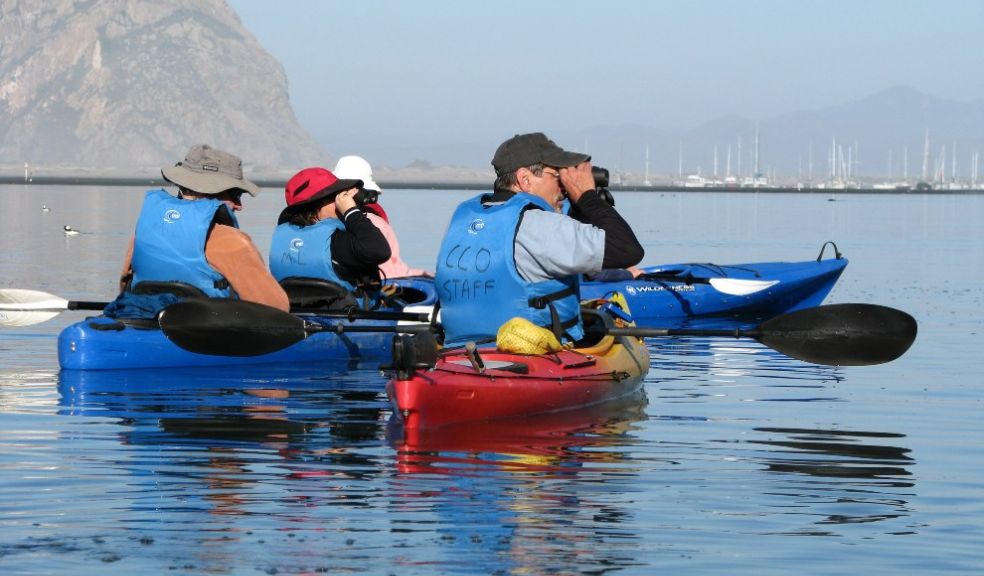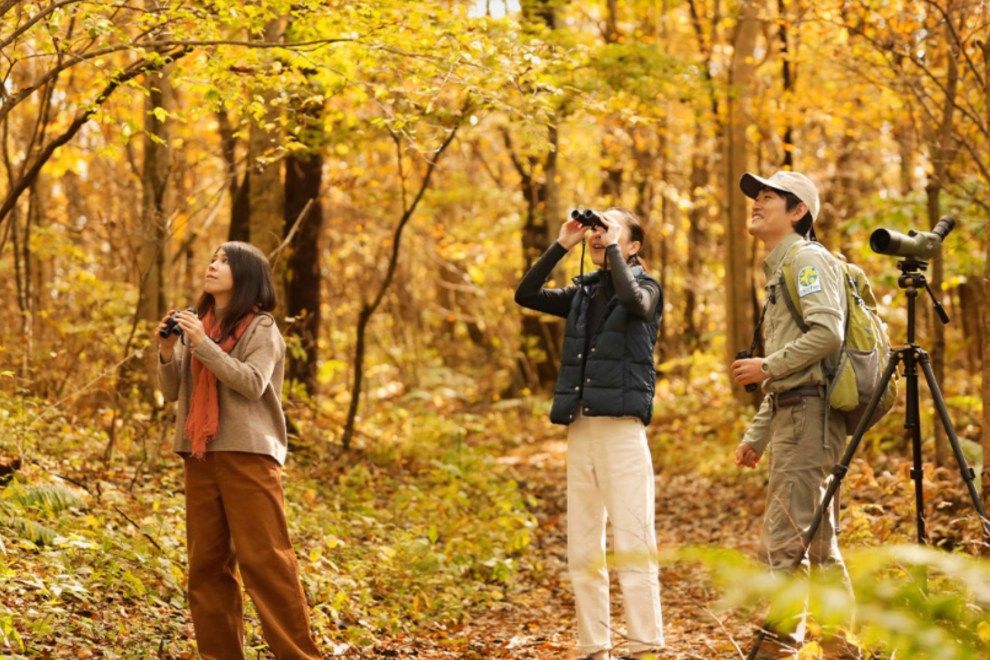
Eight sustainable wildlife experiences for intrepid travellers
Eight sustainable wildlife experiences for intrepid travellers
Earlier this year WWF published a series that explores sustainable marine travel and tourism. It stated that ‘well-managed tourism can support conservation while contributing to sustainable development and providing income opportunities’.
In line with these beliefs, here is a list of non-invasive, wildlife experiences around the world which every traveller should visit to ensure key animal species are protected...
USA
Learn about the unique environments of Naples, Marco Island & the Everglades - Florida’s Paradise Coast
 Located at the southern tip of Florida, the Everglades - part of Florida’s Paradise Coast - is a UNESCO World Heritage site with educational visitor experiences. As the only subtropical mangrove wilderness in the US, and home to many endangered and rare wildlife, the site works to educate visitors while allowing them to experience the ecosystem safely. Everglades Area Tours is one of the only operators certified by the Florida Society for Ethical EcoTourism, with tours focused on being ethical, educational and non-invasive. The tours are led by experienced naturalists and use unobtrusive kayaks to explore safe areas. Florida’s Paradise Coast
Located at the southern tip of Florida, the Everglades - part of Florida’s Paradise Coast - is a UNESCO World Heritage site with educational visitor experiences. As the only subtropical mangrove wilderness in the US, and home to many endangered and rare wildlife, the site works to educate visitors while allowing them to experience the ecosystem safely. Everglades Area Tours is one of the only operators certified by the Florida Society for Ethical EcoTourism, with tours focused on being ethical, educational and non-invasive. The tours are led by experienced naturalists and use unobtrusive kayaks to explore safe areas. Florida’s Paradise Coast
Whale watching in Seattle, Washington
Seattle’s Puget Sound is home to numerous whale species, from orcas and humpbacks to grey whales. There are many whale watching tours where travellers can appreciate the majestic creatures from a distance. The FRS Clipper offers a half-day whale watching tour. Travellers can hop on board and search the Salish Sea for transient orca killer whales, humpbacks, grey whales and more. The all-inclusive journey is around 4-6 hours long and includes experts on board who are ready to educate guests. Prices begin at £98.00 per person. visitseattle.org
Rewilding Expeditions, Estes Park, Colorado
Aimed at restoring and protecting the natural habitats and wilderness areas in Rocky Mountain National Park, Rewilding Expeditions in Estes Park offers multi-day guided backpacking, packrafting and camping opportunities that support and educate visitors on rewilding and conservation efforts. Guests can trade the sound of traffic with the songs of birds in an expedition of true solitude, whilst having the opportunity to deepen their connections to the wild and diminish the ecological impact of ecotourism. www.colorado.com
Unique animals of Mammoth Lakes, California
The community of Mammoth Lakes welcomes visitors to make a positive impact while enjoying the incredible natural beauty of the High Sierra region. One of the best parts about visiting Mammoth Lakes is wildlife viewing. Though the bears are one of the biggest attractions around here, there are birds of prey, alpine rodents and even endangered Sierra Nevada Bighorn. The Sierra Nevada bighorn sheep is a distinct subspecies and is on the state and federal endangered species list, so spotting one is extremely lucky. The Eastern Sierra is also home to more than 300 species of birds, which makes for a great destination for birding. The call of the Chickadees, or “cheeseburger birds” can be heard around town. www.visitmammoth.com
Bat Talk and Walk - Yolo Basin Foundation, Sacramento, California
The Yolo Basin, a true Sacramento attraction, has many treasures that make the area unique. There are a number of watchable wildlife and education programmes for birdwatchers and naturalists including the Bat Talk and Walk by the Yolo Basin Foundation. Between May and September, nearly 10,000 bats reside under the Yolo Causeway bridge. During the Bat Talk and Walk programme, groups enjoy a presentation on bat natural history before being driven to the Yolo Bypass Wildlife Area to watch the “flyout” of the largest colony of Mexican free-tailed bats in California. The bats emerge in long ribbons as they head out to hunt for insects for the night. To get to the viewing site, the group will caravan through wetlands and rice fields to an area not open to the public. Bat Talk and Walk events run from mid-June until mid-September. www.visitsacramento.com
Set sight on the Monarch Butterfly in its natural habitat, Yosemite Mariposa
The colourful insect’s migration across the North American continent is one of the greatest natural events in the world and the western monarch butterfly relies on the California landscape for both breeding and overwintering habitat. Yosemite Mariposa County is so named for the Spanish word for butterfly, Mariposa, as the first group of Europeans that passed through were astounded by the large amount of butterflies they found in this part of the Sierra Foothills. Visit Yosemite Mariposa County to see these orange winged beauties on a daily basis in their natural habitat. www.yosemite.com
Explore ocean wildlife in Morro Bay, SLO CAL, California
There are many ways to explore the abundance of wildlife in San Luis Obispo County, California (SLO CAL) but one of the best up-close-and-personal experiences is joining a kayaking tour of Morro Bay. Hosted by Central Coast Outdoors, half-day excursions start in the calm protected ocean waters of Morro Bay before venturing out to see a seal haul area, a heron rookery and an oyster farm. Travellers can learn about the ecosystem of the area and see sea otters paddling in their natural habitat. The 3-3.5 hour tours cost $75 (£64) per adult, with child discounts available. www.slocal.com
Lindsay Wildlife Experience, Walnut Creek, California
Lindsay Wildlife Experience offers medical and husbandry care to California native wildlife and gives visitors face-time with owls, hawks, reptiles, and opossums. Lindsay Wildlife is also the first wildlife hospital established in the US. Visitors can wander through the Exhibit Hall to meet resident “animal ambassadors” like Penelope the porcupine, or bring the whole clan for a VIPeek experience, which includes feeding or hands-on activities with a desert iguana, tiger salamander, or another California critter. www.visitcalifornia.com
ASIA
Support the protection of Japan’s Asiatic black bears
 An island nation with wide-ranging flora and fauna, Japan’s extensive natural landscapes are home to many rare habitats and protected species. One of the larger animals to inhabit the Japanese wilderness is the Asiatic black bear. The Picchio Wildlife Research Center in Karuizawa, one hour from Tokyo, provides educational programs and habitat management projects as part of the efforts to protect the bears living in the hills of the area. Join a highly trained Picchio eco-tour guide to search for the bears with a focus on sustainability, learning how to keep the bears safe from extinction while also protecting human safety. www.japan.travel/en/UK
An island nation with wide-ranging flora and fauna, Japan’s extensive natural landscapes are home to many rare habitats and protected species. One of the larger animals to inhabit the Japanese wilderness is the Asiatic black bear. The Picchio Wildlife Research Center in Karuizawa, one hour from Tokyo, provides educational programs and habitat management projects as part of the efforts to protect the bears living in the hills of the area. Join a highly trained Picchio eco-tour guide to search for the bears with a focus on sustainability, learning how to keep the bears safe from extinction while also protecting human safety. www.japan.travel/en/UK
READ MORE LIKE THIS...
Out of office on: 18 remote travel spots to switch off
 Foodie Travel: Eight must-visit vineyards and wineries
Foodie Travel: Eight must-visit vineyards and wineries

















